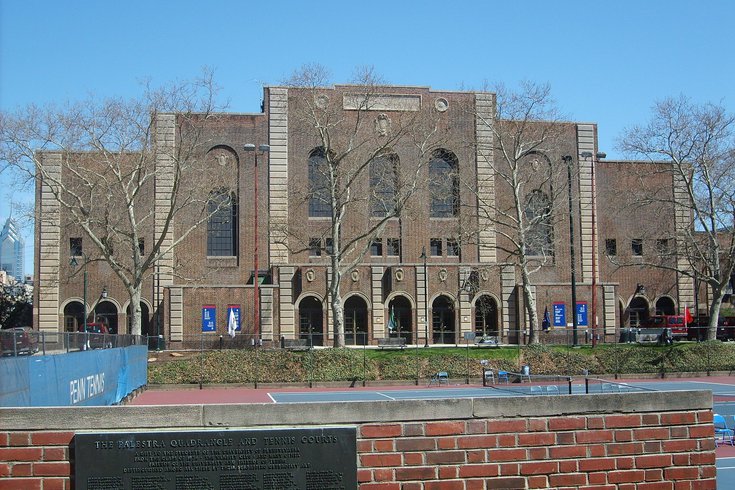
November 10, 2021
 Matthew Marcucci/Public Domain
Matthew Marcucci/Public Domain
Kyle McLemore, 44, was one of two men convicted in a murder that happened outside the Palestra at the University of Pennsylvania on March 1, 1998. McLemore served 21 years in prison, but immediately defrauded a pair of COVID-19 relief programs after his release last year, investigators said.
A Philadelphia man who spent 21 years behind bars for a fatal 1998 shooting outside the Palestra at the University of Pennsylvania has been charged with exploiting COVID-19 pandemic relief programs after his release, federal prosecutors said.
Kyle McLemore, 44, allegedly defrauded a pair of CARES Act programs and obtained more than $139,000 in federal funds by providing false information on his aid applications.
McLemore was convicted in a high-profile shooting in March 1998, when a gunfight broke out at 33rd and Walnut streets after a Philadelphia high school basketball championship game.
Three people were struck by bullets, including a senior at Penn who was working inside the nearby Blauhaus building. Another man, 22-year-old Anthony Davis, died of the injuries he suffered in the shootout. McLemore was sentenced to 18 to 36 years in prison, while co-defendant Nathanial Ortiz was convicted and sentenced to 10 to 20 years.
Less than a week after McLemore was released from prison last year, prosecutors say he developed a scheme to take advantage of the Pandemic Unemployment Assistance (PUA) program and the Economic Injury Disaster Loan (EIDL) program.
In his application for unemployment assistance, McLemore allegedly arranged to claim and provide weekly certifications for funds that covered a period when he remained in prison and would not have been eligible. These PUA benefits amounted to $14,555, prosecutors said.
Later, in June 2020, McLemore allegedly submitted an EIDL application to the Small Business Administration in which he falsely claimed to have been running a tobacco business during the time he was still in prison. He also denied that he had been in prison or on parole in the last five years and used a forged business license from the City of Philadelphia to receive approximately $125,000, according to prosecutors.
“The PUA and EIDL programs established under the CARES Act are intended to help struggling Americans and small businesses stay afloat during the pandemic,” said Acting U.S. Attorney Jennifer Arbittier Williams. “Fraudsters who try to steal these funds are taking advantage of others’ misfortune – ripping them off while also ripping off all taxpayers who fund the programs."
McLemore is charged with mail fraud and theft of public money. If convicted, he faces a maximum possible sentence of 40 years in prison, three years of supervised release, a $750,000 fine, restitution and a $300 special assessment.
The U.S. Justice Department has brought charges against hundreds of people for defrauding COVID-19 relief programs to the tune of hundreds of millions of dollars. About $626 million in funds were seized or forfeited as of March in connection with criminal investigations involving the EIDL program and Paycheck Protection Program (PPP).
Lawmakers have pointed to lax oversight and weak controls by the Trump administration that allowed widespread fraud to undermine COVID-19 relief programs. In the EIDL and PPP programs alone, a Congressional memo estimated there has been as much as $84 billion in fraudulent claims.
The American Rescue Plan, a $1.9 trillion economic stimulus bill passed in March, included an additional $142 million to enhance oversight and prevent fraud in various COVID-19 relief programs.